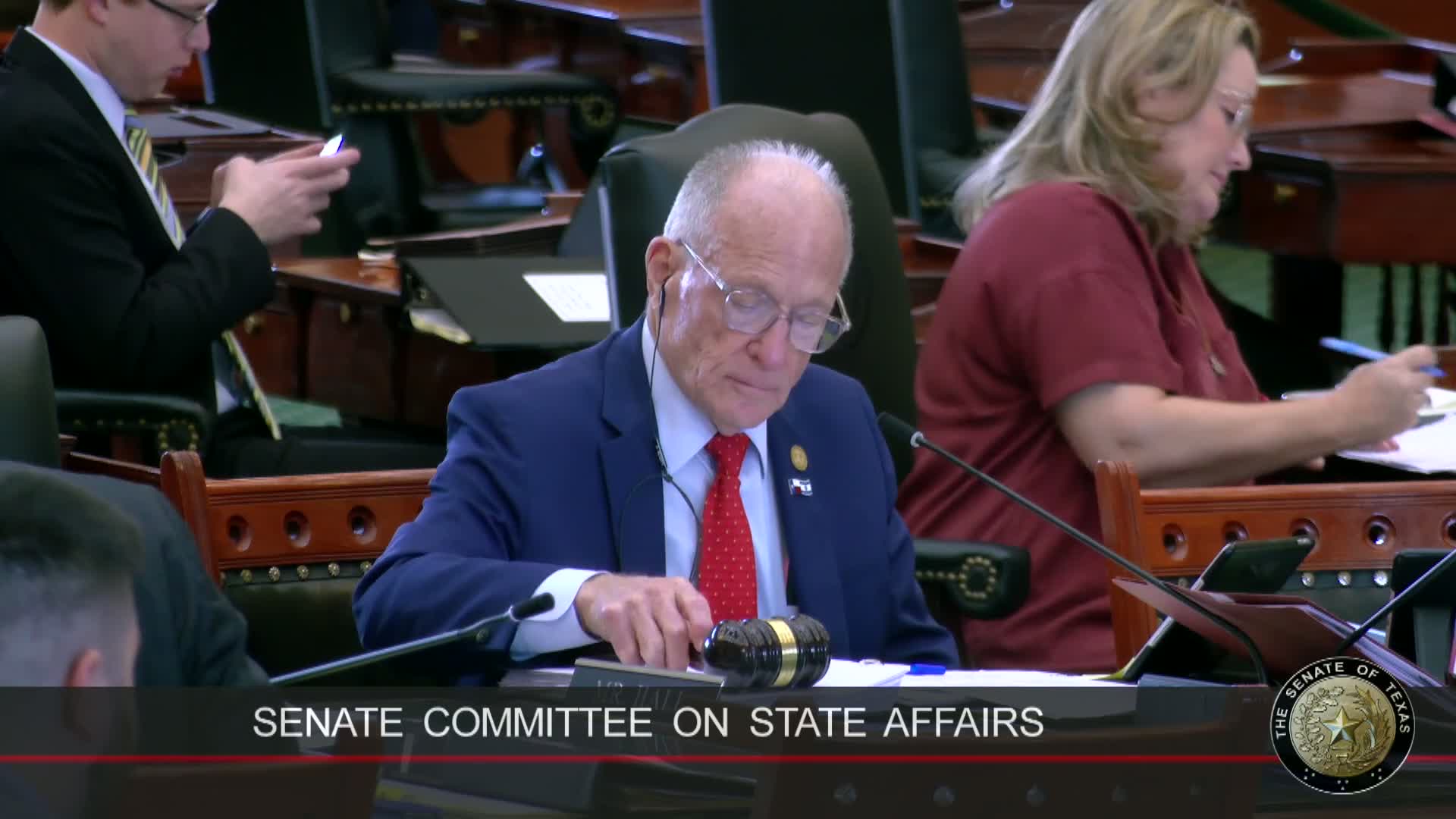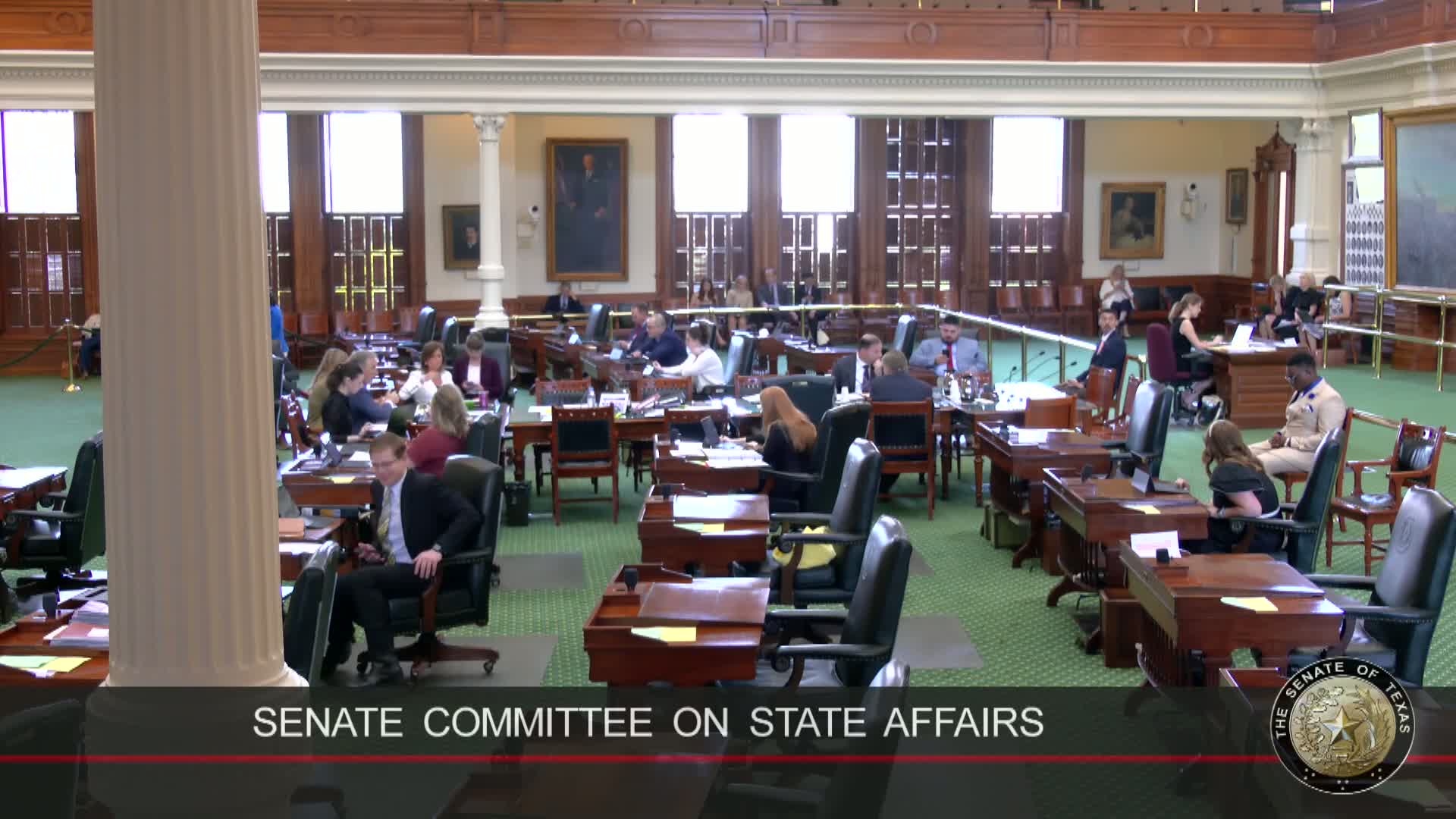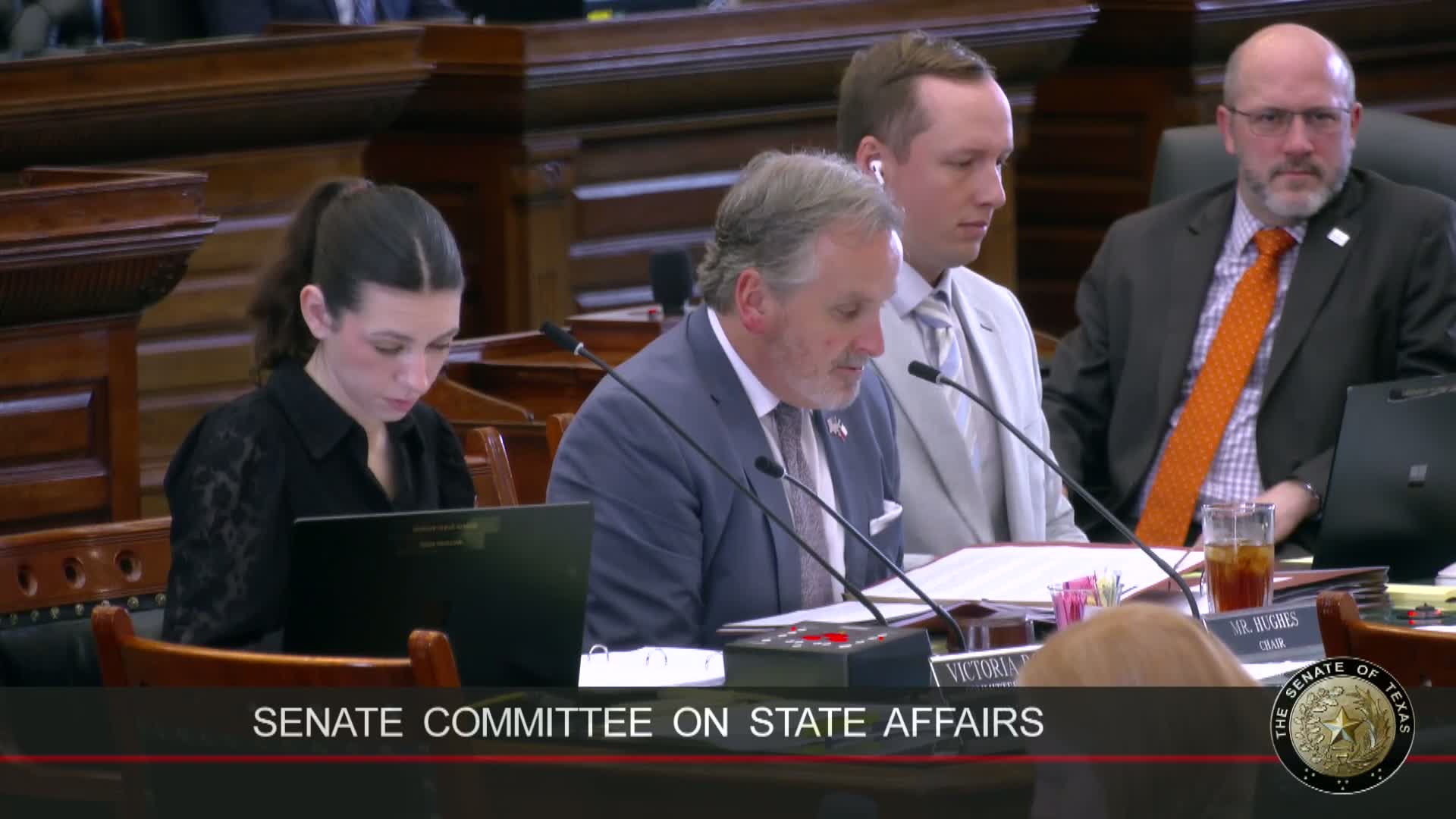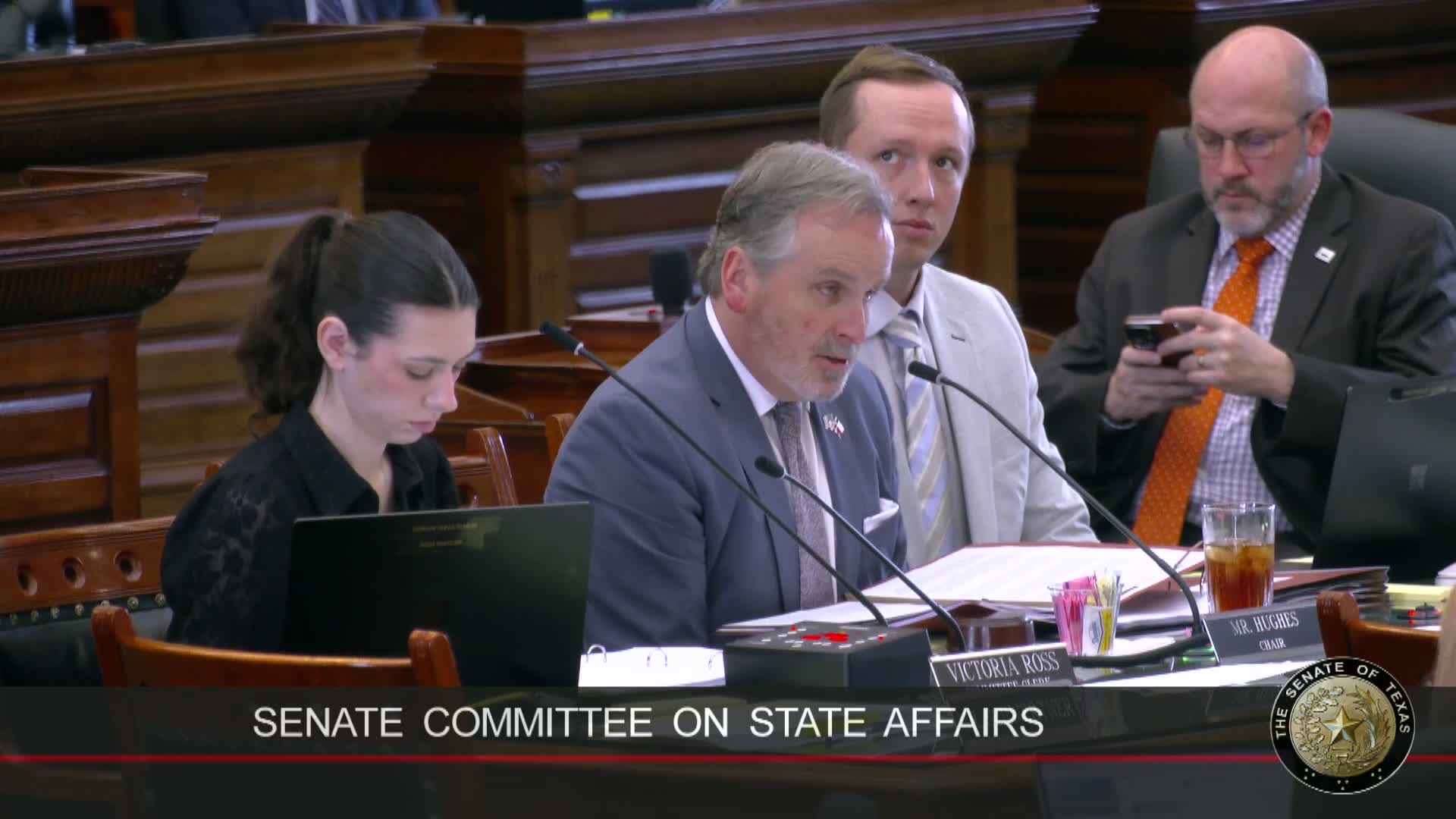Article not found
This article is no longer available. But don't worry—we've gathered other articles that discuss the same topic.

Committee backs correction to construction law after court ruling on venue and choice‑of‑law

Survivors urge Texas to ban NDAs that silence child sexual abuse victims; senators hear personal testimony on 'Trey's Law'

Committee reviews bill to bar state investments in companies tied to China, Russia, Iran and North Korea

